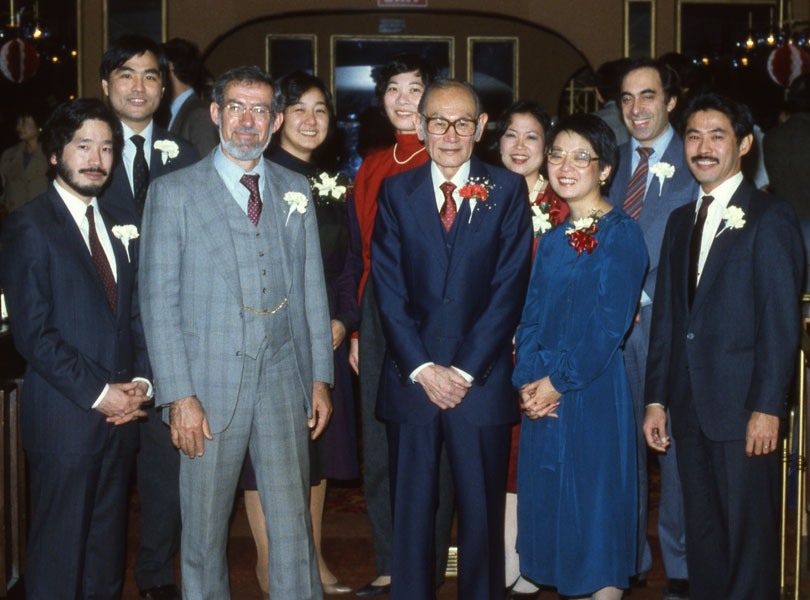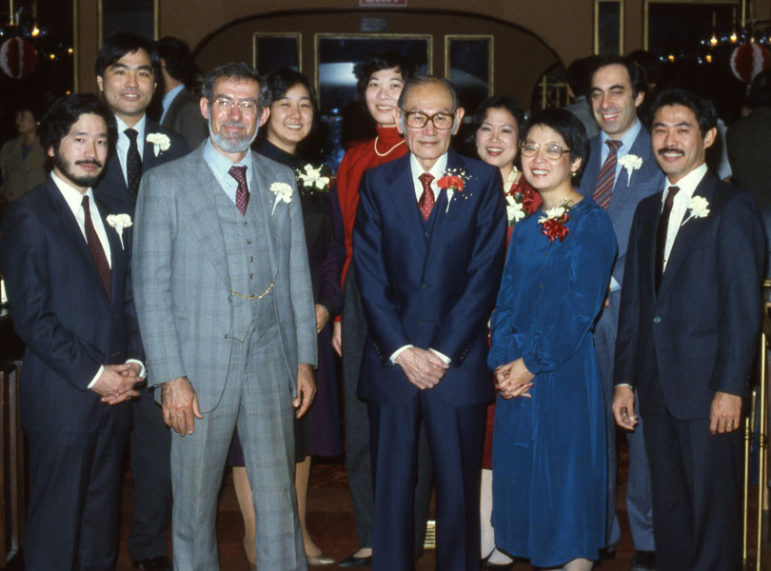

Members of the Fred Korematsu legal team, Karen Kai and Bob Rusky, visited Aragon on Feb. 28 to speak to students in AP U.S. History teacher William Colglazier’s classes about the Japanese-American internment during World War II and the subsequent court rulings on its constitutionality. Students in Colglazier’s classes recently completed a unit on World War II and are currently working on an essay and short video for a competition hosted by the 9th Circuit Court, and will discuss the internment’s relevance to the war on terrorism.
During WWII, President Franklin D. Roosevelt signed Executive Order 9066, directly allowing for the military orders which forced Japanese-Americans living on the West Coast to move inland; in 1942, Fred Korematsu was convicted in a federal trial court for defying these orders. In 1944, Korematsu appealed to the U.S. Supreme Court, and in the infamous Korematsu v. United States case, the Supreme Court ruled in a 6 to 3 decision that the Japanese-American internment was a constitutionally permissible exercise of presidential power.
Almost 40 years later, Kai and Rusky’s legal team was determined to challenge the validity of Korematsu’s conviction. They hoped to obtain a writ of error coram nobis because they had discovered that government officials had deliberately lied during the original case. The writ would allow the federal trial court to overturn Korematsu’s original conviction. Kai explains, “There was grounds for this writ … which was very rare, because it only gets brought when the conviction has been made, the sentence has been served, and everything is over. And it’s only brought in cases where there has been a wrong before the court. The intentional misconduct of the government, in presenting false evidence, provided those grounds.”
For Kai, her husband Rusky, and the other lawyers, Korematsu’s conviction was one which affected them personally. Kai reflects, “It was one of these things that, when you go to law school, when you head into a profession, you never think that ‘I’m going to be involved in one of the landmark cases,’ and certainly not one that affected our families … the connection was there.”
Additionally, the lawyers expressed a desire to correct the wrongdoings of the court. “We were pro bono,” Kai explains, “and pro bono cases are for the public good, so we don’t charge legal fees.” Fred Korematsu himself had expressed that “[he] would like to see the government admit they were wrong and do something about it, so this will never happen again to any American citizen of any race, creed, or color.”
In 1983, Korematsu’s conviction was vacated, meaning that the original decision was set aside as if it never happened. Essentially, Korematsu’s name was cleared, and the government recognized that injustice had occurred. However, although Korematsu’s conviction has been overturned, the Supreme Court’s constitutional interpretation remains valid. During the lecture, Rusky brought up Robert Jackson, one of the three justices who had opposed the Korematsu v. United States ruling. Jackson explained the significance of the court’s decision: “Once a judicial opinion … rationalizes the Constitution to show that the Constitution sanctions such an order, the Court for all time has validated the principle of racial discrimination in criminal procedure and of transplanting American citizens. The principle then lies about like a loaded weapon, ready for the hand of any authority that can bring forward a plausible claim of an urgent need.”
In light of recent events, Kai and Rusky encouraged students to consider the connection between the Japanese internment and President Donald Trump’s recent executive order, which increased the restrictions for many immigrants trying to enter the United States. Junior Theresa Chen notices that “In both cases, underlying racism was a big factor, but was obscured under an official purpose like ‘protection of the nation’ or ‘security.’”
Junior Peter Haramis concludes, “[Trump] doesn’t provide any evidence [to support his claims]. It’s the same exact thing as the Japanese internment. There was no evidence that every single Japanese-American was loyal to the Japanese empire, and would commit sabotage, but they were still locked up. It’s kind of like that fear, and alienation. [People] felt like they weren’t Americans, and that they could do that to them because they weren’t Americans, when in reality, they are.”
